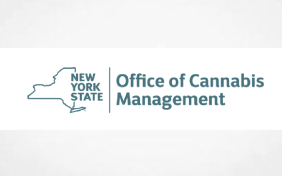18 April 2017
First up an analysis by SLAW a Canadian website and information source that has law professors and legal information specialists as its contributors. SLAW is a great place to start analyzing the legislation being proposed.
Download the proposed legislation here
SLAW ANALYSIS
|
Canada’s Cannabis Act: A High Level Overview Posted: 18 Apr 2017 05:00 AM PDT The Cannabis Act, which will legalize the recreational use of cannabis across Canada, was unveiled by the federal government this past Thursday. The Act is fairly dense, spanning 226 sections and 6 schedules. While there is a lot of content to digest in the Cannabis Act this is only the tip of the legislative-iceberg. Much of the new law will be encoded in the yet to be drafted federal regulations. Additionally, the provincial and municipal governments across the country have a large role to play as they have been explicitly given authority by the federal government to fill in some of the legislative holes (e.g. as the law will relate to retail and distribution) or to alter some of the existing baselines set out by the Cannabis Act (e.g. the minimum age for purchase and consumption). Below are some of the highlights of the Cannabis Act. This post is meant to serve as a high-level overview. Overarching Theme The federal government has made it clear, repeatedly, that the purpose of legalizing cannabis is to restrict access and keep it out of the hands of Canadian youth and to drive organized crime out of the cannabis business. This overarching theme of protecting youth and promoting public safety is evident throughout the Act and indeed the second sentence of the Act itself explicitly states that its objectives are to prevent young persons from accessing cannabis, to protect public health and public safety and to deter criminal activity. Consistent with this overarching theme is the fact that the government has stated that the existing law prohibiting the production, sale and consumption of recreational cannabis will continue to be enforced until the Cannabis Act comes into effect (which the government has indicated will be no later than July, 2018). Whether or not you agree with this approach, it is fair to say that if the government were to cease enforcing the existing laws prior to the Cannabis Act coming into force it would severely undermine its stated objective of protecting youth and deterring criminal activity. Grow Your Own The Cannabis Act permits households to grow four of their own plants provided that the plants do not grow to a height of more than one meter. This four plant limit exists regardless of the number of adults that reside in the household. If an adult, or household, decides to grow less than four plants, or none at all, they are prohibited from transferring their “unused allotment” to someone else. Interestingly, people will not be restricted to growing indoors. The Cannabis Act explicitly contemplates that people will be able to grow in their gardens, yards, greenhouses and the like. Provinces and municipalities may step in and lower the number of plants that can be grown per household. In theory, these lower levels of government could also place restrictions on the ability to grow outdoors. What Can you Buy? Adults will be able to purchase fresh cannabis, dried cannabis, cannabis oil, cannabis plants or seeds. Edibles are not yet on the table. However, the federal government has explicitly said that it very much intends to legalize the sale of edibles, it just wants to take things a bit slower on that front because they really want to be sure they get it right. In particular the government is concerned with issues such as standardizing serving sizes and potency, child-resistant packaging requirements and standardizing health warnings. That being said, adults will be able to alter the cannabis that they purchase, provided that the alterations do not run afoul of the Act, which means that while you cannot purchase edibles, you certainly can make and consume them yourself. How Much Can you Buy? Adults will be able to possess 30 grams of dried cannabis, or the equivalent amount in fresh or oil form as prescribed by the Act, in public. Similarly, an adult will only be able to buy 30 grams or its equivalent at one time. This 30 gram limit is the maximum. The federal government has left it open for the individual provinces to lower this number if they see fit to do so. Advertising Advertising is a hot issue for people who are in the cannabis industry, whether it be the existing Canadian medical cannabis industry, or in the cannabis industry in one of the American states where cannabis is legal. It was expected that the government would come down hard with regulations heavily restricting advertising along the lines of the tobacco industry. The Cannabis Act does set heavy restrictions on advertising but there are some interesting exceptions / wrinkles. One relates to being able to promote cannabis or cannabis accessories (perhaps in a limited fashion) provided that the advertising will only be seen by those 18 years of age or older. Another exception is business to business advertising, which appears to be completely exempt from whatever restrictions are looming in the yet to be drafted regulations. What about the Medical Regime? The existing medical system which operates under the Access to Cannabis for Medical Purposes Regulations (“ACMPR”) will continue. The federal government will initially allow the two systems to operate in tandem and has indicated that it intends to evaluate the medical regime within five years of the Cannabis Act coming into force. However, there is some immediate cross-over between the two systems. For example, companies licensed to cultivate or sell under the ACMPR are deemed to be licensed under the Cannabis Act as well. Seeing how the recreational regime will impact the existing medical regime on a practical level will be one of the more interesting things to watch once the Cannabis Act comes into force. Protecting the Children and Turfing the Criminals Some of the penalties for offences under the Cannabis Act are extremely heavy. Selling more than 30 grams, selling illicit cannabis (i.e. cannabis not grown by someone licensed under the Cannabis Act) and selling to children under 18 can result in a maximum sentence of 14 years in jail. The government has also made selling at a school or any other place where children are likely to frequent an aggravating factor that has to be considered by the judge when sentencing. Other offences have a wide range of penalties and can be pursued either by indictment or by way of summary offence. Way down at the bottom end of the severity chart are some offences (e.g. growing more than 4 plants) which can result in a simple ticket, fine and no criminal record. What Is Next? As mentioned above, while the overall framework has been revealed there is still a lot of meat that has to be put on the legislative bones by way of regulations. Additionally, the provinces and municipalities have about 15 months to form their own legislation and regulations on issues that the federal legislation will not touch. This includes issues like how and where cannabis will be sold, distributed and consumed. As such, there is going to be a lot more law rolling out across the country. The Cannabis Act is simply the opening chapter in the new world of legalized recreational cannabis in Canada. |
The Globe And Mail
How Canada’s marijuana legislation will affect employers
Robert Weir is a partner at Borden Ladner Gervais LLP. Adam Pennell is an associate at Borden Ladner Gervais LLP. Both are members of the labour and employment department
When recreational marijuana users gather on April 20 for Cannabis Day, they will have something else to celebrate: much anticipated legislation which decriminalizes marijuana in Canada. Last Thursday, the federal Liberal government tabled the Cannabis Act. While this legislation sets out the path forward for legalizing recreational marijuana, the responsibility for more detailed laws relating to distribution and sale will rest with the provinces. All of these moving parts are expected to come together by July, 2018.
The Cannabist / Washington Post
Digging into the details of Canada’s new law legalizing marijuana nationwide
http://www.thecannabist.co/2017/04/14/canada-marijuana-legalization-legislation/77314/
Canada on Thursday released a plan to legalize recreational marijuana use across the country by July 2018. With a solid Liberal majority in government the plan is widely expected to become law, but it would leave the details of implementation, including commercial regulations, to individual provinces.
The bill’s backers framed it as an effort to reduce adolescent drug use and take profits out of the black market. “Criminal prohibition has failed to protect our kids and our communities,” said Bill Blair, parliamentary secretary to the Minister of Justice and a former Toronto police chief and one of the architects of the law, at a press conference. The new bill will “make Canada safer,” he added.

















